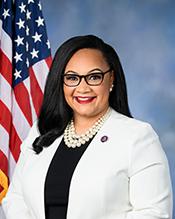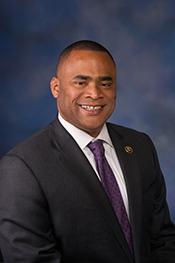0
0
0
Henrietta Lacks Congressional Gold Medal Act
3/5/2024, 8:15 AM
Summary of Bill HR 4122
Bill 118 hr 4122, also known as the Henrietta Lacks Congressional Gold Medal Act, is a piece of legislation that aims to honor the life and contributions of Henrietta Lacks. Henrietta Lacks was an African American woman whose cells were taken without her consent in 1951 and used for medical research, leading to numerous scientific advancements.
The bill proposes awarding Henrietta Lacks with a Congressional Gold Medal, which is one of the highest civilian honors in the United States. This medal would be given posthumously to recognize her significant impact on medical research and the field of science.
The legislation highlights the importance of informed consent in medical research and aims to raise awareness about the ethical implications of using individuals' cells for scientific purposes without their knowledge or consent. It also acknowledges the contributions of Henrietta Lacks to the field of medicine and the countless lives that have been saved as a result of her cells. Overall, the Henrietta Lacks Congressional Gold Medal Act seeks to honor a remarkable woman whose legacy continues to inspire and educate people around the world.
The bill proposes awarding Henrietta Lacks with a Congressional Gold Medal, which is one of the highest civilian honors in the United States. This medal would be given posthumously to recognize her significant impact on medical research and the field of science.
The legislation highlights the importance of informed consent in medical research and aims to raise awareness about the ethical implications of using individuals' cells for scientific purposes without their knowledge or consent. It also acknowledges the contributions of Henrietta Lacks to the field of medicine and the countless lives that have been saved as a result of her cells. Overall, the Henrietta Lacks Congressional Gold Medal Act seeks to honor a remarkable woman whose legacy continues to inspire and educate people around the world.
Congressional Summary of HR 4122
Henrietta Lacks Congressional Gold Medal Act
This bill awards posthumously a Congressional Gold Medal in commemoration of Henrietta Lacks in recognition of her immortal cells which have made invaluable contributions to global health, scientific research, our quality of life, and patients' rights.
Read the Full Bill
Current Status of Bill HR 4122
Bill HR 4122 is currently in the status of Bill Introduced since June 14, 2023. Bill HR 4122 was introduced during Congress 118 and was introduced to the House on June 14, 2023. Bill HR 4122's most recent activity was Referred to the Committee on Financial Services, and in addition to the Committee on House Administration, for a period to be subsequently determined by the Speaker, in each case for consideration of such provisions as fall within the jurisdiction of the committee concerned. as of June 14, 2023
Bipartisan Support of Bill HR 4122
Total Number of Sponsors
1Democrat Sponsors
1Republican Sponsors
0Unaffiliated Sponsors
0Total Number of Cosponsors
106Democrat Cosponsors
106Republican Cosponsors
0Unaffiliated Cosponsors
0Policy Area and Potential Impact of Bill HR 4122
Primary Policy Focus
Science, Technology, CommunicationsAlternate Title(s) of Bill HR 4122
Henrietta Lacks Congressional Gold Medal Act
Henrietta Lacks Congressional Gold Medal Act
To award posthumously a Congressional Gold Medal to Henrietta Lacks, in recognition of her immortal cells which have made invaluable contributions to global health, scientific research, our quality of life, and patients' rights.
Comments
Sponsors and Cosponsors of HR 4122
Latest Bills
To authorize, ratify, and confirm the Agreement of Settlement and Compromise to Resolve the Akwesasne Mohawk Land Claim in the State of New York, and for other purposes.
Bill HR 2916December 11, 2025
Holocaust Expropriated Art Recovery Act of 2025
Bill S 1884December 11, 2025
Public Lands Military Readiness Act of 2025
Bill HR 5131December 11, 2025
Dalles Watershed Development Act
Bill HR 655December 11, 2025
STARS Act
Bill HR 4285December 11, 2025
To designate the facility of the United States Postal Service located at 86 Main Street in Haverstraw, New York, as the "Paul Piperato Post Office Building".
Bill HR 1009December 11, 2025
Make SWAPs Efficient Act of 2025
Bill HR 1676December 11, 2025
Miccosukee Reserved Area Amendments Act
Bill HR 504December 11, 2025
To designate the facility of the United States Postal Service located at 298 Route 292 in Holmes, New York, as the "Sheriff Adrian 'Butch' Anderson Post Office Building".
Bill HR 1008December 11, 2025
Lower Elwha Klallam Tribe Project Lands Restoration Act
Bill HR 2388December 11, 2025
Henrietta Lacks Congressional Gold Medal Act
Bill S 2485December 7, 2023





